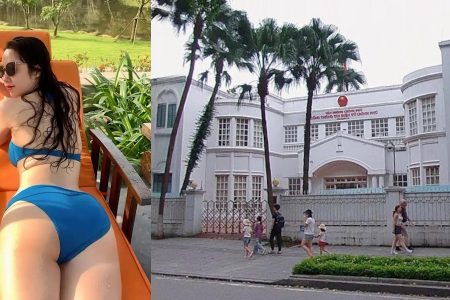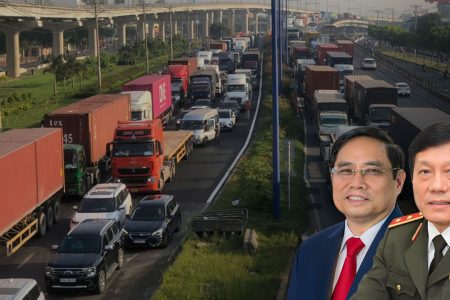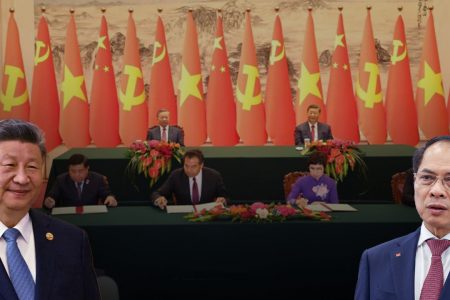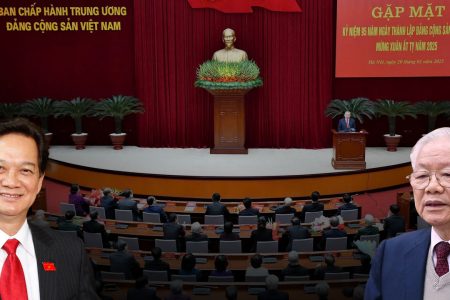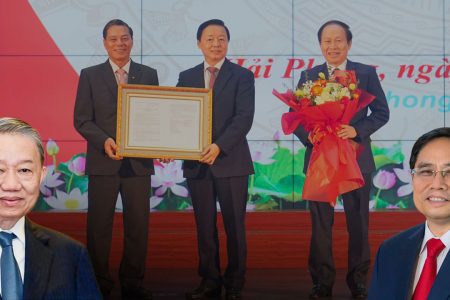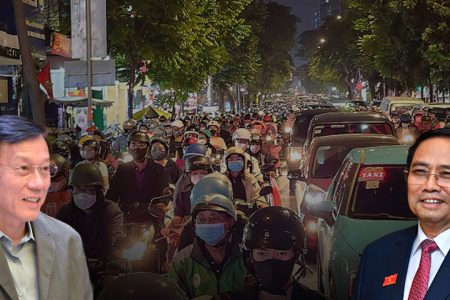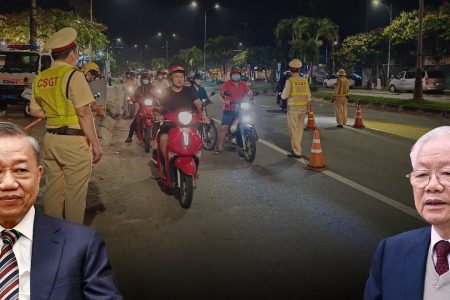
Controversy has broken out regarding the transparency of Vietnam’s Nano Covax vaccine development and production.
Visiting the Nanogen Pharmaceutical Biotechnology Joint Stock Company, Prime Minister Pham Minh Chinh asked to immediately remove all difficulties and obstacles and study and set up an action team to promote the production of vaccines against Covid-19 at the earliest time.
Meanwhile, the scientific community continues to express doubts and concerns about the information that Nanogen gives regarding the Covid-19 vaccine called Nano Covax that this company is developing.
The Ministry of Health disagrees with Nanogen
PM Chinh’s visit to Nanogen Company in HCM City on June 26 shows that Vietnam is trying to find more solutions to supply vaccines besides imports, which are facing difficulties due to scarcity of supply.
The above step also contributes to dispelling speculation that Nanogen Company is being subject to procedural difficulties.
Previously, on June 22, Nanogen said that it had made a written request to the PM to apply for an emergency license for its Nano Covax vaccine.
Nano Covax is a vaccine researched by Nanogen, has just finished clinical trials phase 1 and 2. According to Nanogen’s share with the press, the product has been well evaluated by the Ethical Council of the Ministry of Health and the research protocol has been approved for deploying phase 3 clinical trials on the scale of 13,000 people.
However, soon after, a representative of the Ministry of Health said that “the proposal to license the Nano Covax vaccine is hasty and lacks scientific data.”
Answering Tuoi Tre newspaper on June 22, Mr. Nguyen Ngo Quang – deputy director of the Department of Science, Technology, and Training under the Ministry of Health – emphasized: “In the current context, the urgent licensing for a Covid-19 vaccine is needed. However, all must be based on the principle of sufficient scientific data to prove and answer three big questions: Is it safe? Does it create immunity? Is there a protective effect?”

Mr. Quang said that he was a close follower of Nanogen’s criticism, suggestions, and guidance during the research process, but was “completely unaware of this petition.”
Although he thinks that petitions are the right of businesses, and the management agency must base on the regulations to decide whether to allow it or not, the Ministry of Health official said that “Nanogen’s petition is too early and hastily without sufficient scientific data.”
In the past few days, the domestic press, citing information from Nanogen, has continuously published many optimistic articles about this “made in Vietnam” vaccine.
Thanh Nien newspaper wrote: “Nanogen said that based on clinical trial results, the immunogenic ability of Nano Covax vaccine reached 99.4%. If compared with other vaccines in the world, it is not inferior and somewhat higher. However, the expected selling price is currently the lowest in the world, with only VND120,000 ($5)/dose.”
Nanogen revealed that it had sent Nano Covax samples to WHO for testing. The company said it also affirmed that when producing vaccines, safety must be put first. Not only safe but must ensure immunogenicity and real protective effect.
The Government electronic newspaper on June 26 quoted Ho Nhan, General Director of Nanogen Company, as saying that the company is clinical testing the Nanocovax vaccine phase 3 (including 3a and 3b) on 13,000 volunteers and coming soon will inject phase 3c in 1 million people. According to the paper, “this is one of the largest-scale studies of vaccines in the world.”
Many people believe that the Vietnamese press has created an optimistic spirit in a part of the public.
“I completely believe in Vietnamese scientists, especially the Nano Covax vaccine. If mass vaccination is implemented right now, I would like to be the first volunteer, hoping the Prime Minister has a solution to urge the vaccine to be administered. Nano Covax will soon be available to the people,” one person commented after the article in Thanh Nien newspaper.
Many opinions also called on the state to create conditions, even invest money so that Nanogen could be soon a locally-produced vaccine product that will help solve the problem of scarcity of supply.
Concerns about transparency
Up to now, all claims about the “world’s leading immunogenicity” rate or related information that the press has published have come from Nanogen representatives. Scientists independent of this vaccine development have not had the opportunity to access data for analysis, evaluation, and criticism.
Some people think that Nanogen is confusing when publishing information that “the immunogenicity of Nano Covax vaccine reaches 99.4%,” compared to other vaccines in the world “not inferior and somewhat higher.” This number, if placed next to the protection effectiveness rate, will be confusing for non-medical readers, for example, Pfizer-BioNTech has a 95% protection efficiency, according to the US’s CDC.
Vietnam injects Covid-19 vaccine on humans
The difference between these two concepts has been pointed out by Associate Professor Pham Thi Van Anh – Director of the Center for Clinical Pharmacology, Hanoi Medical University – in the journal Public Health: In some cases, An immunogenic vaccine is not necessarily protective.
The key to assessing the effectiveness of a vaccine is its protective effect, and immunogenicity is only a necessary condition, not a sufficient condition.
On his personal Facebook, Professor Nguyen Van Tuan in Australia wrote: “In my opinion, the issue that the public (and the scientific world) is concerned about right now is that whether the vaccine made in Vietnam is effective in reducing the risk of infection, reducing the risk of infection and safety.”
According to Mr. Tuan, to know if a vaccine is effective or not, it is necessary to do scientific research: “Scientific research goes from basic research, animal research, and human testing. Human trials must be done through three phases 1, 2, and 3. Phase 1 and 2 are mainly to evaluate the safety of the vaccine, phase 3 is to evaluate the effectiveness (and safety) of the vaccine.”
It can be seen that so far Nano Covax has not met the requirements of the vaccine development process as stated by Professor Tuan.
Professor Tuan continued: “Until now, we still do not know if the vaccine is effective in reducing infection. We do not know if the vaccine reduces the risk of hospitalization. We do not know the safety of the vaccine. (and probably won’t know until a few years later.) Not having the results of phase 1 and 2 trials released yet, but doing phase 3 is quite risky, and yet the vaccine was expected to be effective. 90%! Can’t understand how a calculation can be so predictable.”
Mr. Tuan also said that some people confuse the spirit of nationalism with the spirit of science. He concluded that he agrees with the view of the Ministry of Health that it is necessary to wait for more evidence before making a decision.
Dr. Nguyen Hong Vu from the City of Hope Cancer Research Institute (California, USA) also said that the evaluation of the Nano Covax vaccine at this time is “as difficult as going to heaven” because the development team does not share scientific data.
Vu wrote on his personal Facebook that only based on information published in the “popular” newspaper, “Nanogen said that based on clinical trial results, the immunogenic ability of Nano Covax vaccine reached 99.4% but it is naive to “put faith” in Nano Covax.
And Dr. Vu assessed: “The petition for an urgent license for the Vietnamese Nano Covax vaccine at this time is a very ‘superficial’ job of Nanogen company when it has not clearly proven its ‘safety and effectiveness.’ I completely agree with Mr. Nguyen Ngo Quang that ‘to decide whether to grant an emergency license, the Ministry of Health needs scientific data.”
Thoibao.de (Translated)



